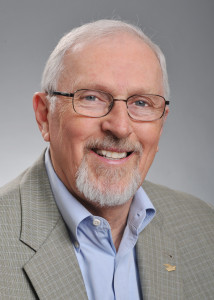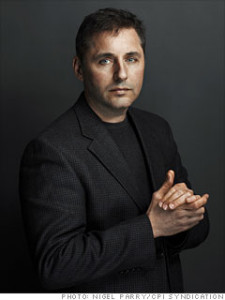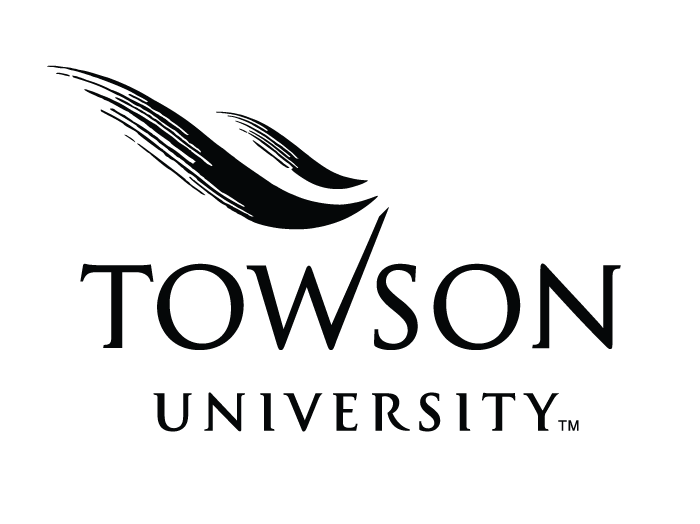Three members of the Towson University community received honors Wednesday at the Maryland Chapter of the Association of Fundraising Professionals’ National Philanthropy Day event.
Ray and Pam Stinar, along with Hussman Center for Adults with Autism benefactor John P. Hussman, were recognized for their dedication and gifts to the university’s outreach through the College of Health Professions.
Ray Stinar retired in 2009 as chair of the kinesiology department and associate dean of the college. Since then, he and his wife Pam have dedicated more than 175 hours working to raise financial and in-kind donations for the College of Health Professions’ Wellness Center, the Hussman Center for Adults with Autism and the Institute for Well-Being as a whole. On Wednesday, the AFP honored them with the 2013 Unsung Hero Award.
“We never even thought about being recognized for what we do,” said Pam Stinar. “It’s just what we do. It’s fun and fulfilling, and we’re very proud of Towson, so anything that has to do with Towson, we’re there.”
“We were in this little office about the size of this table,” recalled Ray Stinar about the beginnings of the Hussman Center for Adults with Autism. “Same way for the Institute of Well-Being. When we started the Wellness Center, we were in the Administration building and the Towson Center, and now we’ve got this beautiful building. [It’s meaningful] to see your dreams and thoughts come true.”
The Stinars joined 14 other philanthropists at the event—four of whom were children—who were singled out for their impactful contributions to Maryland charities and public service efforts. But the major awards of the day went to the Abell Foundation and to AFP-Maryland Outstanding Philanthropist of the Year John P. Hussman.
Hussman and his wife, Terri, are the parents of an adult son on the autism spectrum. They donated more than $1 million in support of the College of Health Professions’ Hussman Center for Adults with Autism. Their philanthropy goes far beyond that gift: in addition to other autism awareness efforts across the country, they support work to educate special needs students and prevent homelessness in Maryland, and to protect the health and safety of children in war-torn and impoverished nations around the world through the Carter Center. It’s work that earned such respect from former president Jimmy Carter that he appeared on video to personally thank the Hussmans— a moment that left John Hussman slumped in his chair with thrilled shock while Terri beamed beside him.
“I’m continually inspired by their commitment to helping people overcome debilitating diseases, poverty and discrimination,” said the former president. “[Rosalynn Carter] and I have seen firsthand how their support makes a difference in the lives of many people. We’re thankful for their partnership in the effort to improve global health and proud of John for this well-deserved award.”
“For me, it’s not about anything personal,” Hussman later said. “It’s a wonderful opportunity for people to be aware of our partners that are doing amazing work, and everyone at Towson is very high among that group.”
But Hussman Center director Rhonda Greenhaw says that work would have been impossible without the Hussmans’ donation. “It is vital that the right staff are involved in these programs. The gift from the Hussmans provided us the opportunity to bring in professionals from diverse perspectives to be able to create meaningful programs that meet [our population’s] needs.”
Towson University President Maravene Loeschke presented Hussman with his award, noting that, for all the work he and his wife have done that bears their name, there is much more for which they’ve never been recognized.
“He prefers to give quietly—often anonymously,” Loeschke said. “So, who knows how many lives he has touched?”
In his acceptance speech, Hussman addressed the heart of his autism-related philanthropy.
“Our goal isn’t a world without autism, or a world where people with autism do all the changing. It’s a world where we change as well, where we embrace people with autism as they are, where we presume their competence, where we make adaptations to their needs and we treat them as equals.”
Related links: AFP video tribute to John P. Hussman, Ph.D. (produced by Doug Maddox ’90, DBM Communications)


